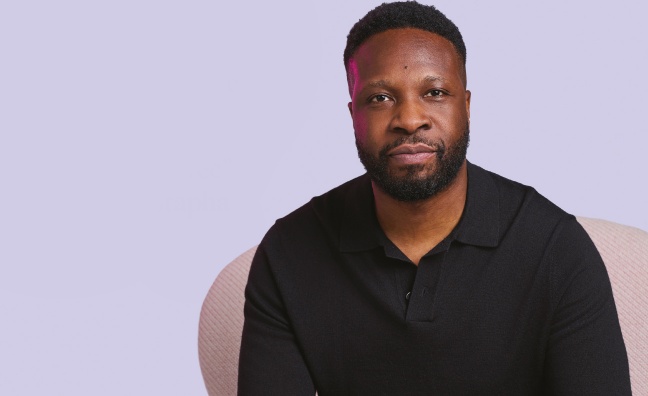TikTok continues to supercharge hits around the world, alongside launching new initiatives on ticketing and streaming partnerships.
Toyin Mustapha, who was recently appointed head of music partnerships, UK, Ireland & SSA, is interviewed for a TikTok exclusive in the new edition of Music Week.
Here, he outlines why the platform has become a vital partner for artists…
You’ve been at TikTok since 2018. How has the platform’s role in the music industry changed over that time?
“It’s been a really great evolution. We have really matured and, as a music team, our focus has been on finding new ways and tools that help artists to promote their music and connect with audiences. Where TikTok has really thrived is that it’s a really great promotional platform. When artists are looking to release their music, it is obviously part of their plans in how they can maximise the potential to get their music heard. The way that content is typically served means it finds people that might not already be following you or might not have heard of you. The fact that we have a one billion-plus community means TikTok has become such a huge place for artists to be able to have their music discovered.”
How do you plan on taking it forward under your leadership?
“I really want us to continue to be great partners to the music industry, be that major labels, indie labels, emerging artists, established artists… We’ve introduced some amazing features to help do that and I want us to continue to innovate to make sure that TikTok can support artists at every stage of their careers. Ticketing is a great example. We’ve partnered with Ticketmaster, AXS and CTS Eventim to offer fans a new way to buy tickets. Our thinking there was, ‘How can we make it easier for artists to promote their shows, and how do we make it easier for fans to buy tickets?’ We know a lot of artists these days don’t want to be too promotional with their content, so the ticketing link, which is a small anchor at the bottom of videos, allows artists to be more passive, while enabling fans to easily buy tickets. We did it with Niall Horan, and having an artist of his stature to help test it was amazing.”
The UMG dispute has been a huge story this year. What did you learn from the outcome?
“It was before I started my role, but from our point of view, we’re really happy that an agreement was reached [a new licensing deal was signed in May]. Despite all of that, we hit the ground running straight away with Universal again, working with Sam Smith and Chase & Status and Stormzy recently. We’re really happy to be working with them again and we’re looking forward to working more closely with Universal and deepening that partnership.”
Are you concerned that similar fallouts could happen?
“No, definitely not. My main focus is to work with everyone. Ole Obermann [global head of music business development] and his team are the experts in the licensing field, but as far as we’re concerned, we want to make sure we’re helping drive the industry forward.”
The fact that we have a one billion-plus community means TikTok has become such a huge place for artists to be able to have their music discovered
Toyin Mustaph
It brought remuneration into the spotlight. Can you reassure the industry that TikTok has artists’ best interests at heart?
“Absolutely. Music is at the heart of the TikTok experience and we want to continue to be a place where fans can discover new music and artists can connect with fans. One of the things that we are doing to try and help this is the #NewMusic hub, which is a space for artists to showcase new songs. My focus is on how we can service artists and fans, and close the gap between the two.”
With the ongoing trend for sped up and slowed down songs, does TikTok pose any risk to musicians’ art?
“It’s down to the community and how they interpret and want to use particular songs. That is obviously one of the big driving forces behind TikTok. Fans have always wanted to get involved in the process and I think TikTok has really helped them become a lot closer to the artists. They are more mutually involved in the promotion process. What we’re seeing is artists listening directly to fans and giving them what they want to help them relate to their music more. It’s the democratisation of music, with artists really paying attention to their audiences and giving them what they want, which is a really good thing.”
In terms of competition, do you see DSPs or radio, for example, as rivals?
“We want to be partners to everyone. A prime example is the launch of the Add To Music App feature last year, in partnership with streaming services including Amazon and Spotify. TikTok continues to be a pipeline to streaming services and you can see this by the impact it has had on the UK charts. An integration with DSPs felt really obvious, and it helps shorten the gap between TikTok and those DSPs. We don’t really see it as competition; we’re looking at it as partnerships every step of the way.”
Subscribers can read our interviews with the new TikTok UK music team here, including the full interview with Toyin Mustapha.
PHOTO: Andy Tyler












